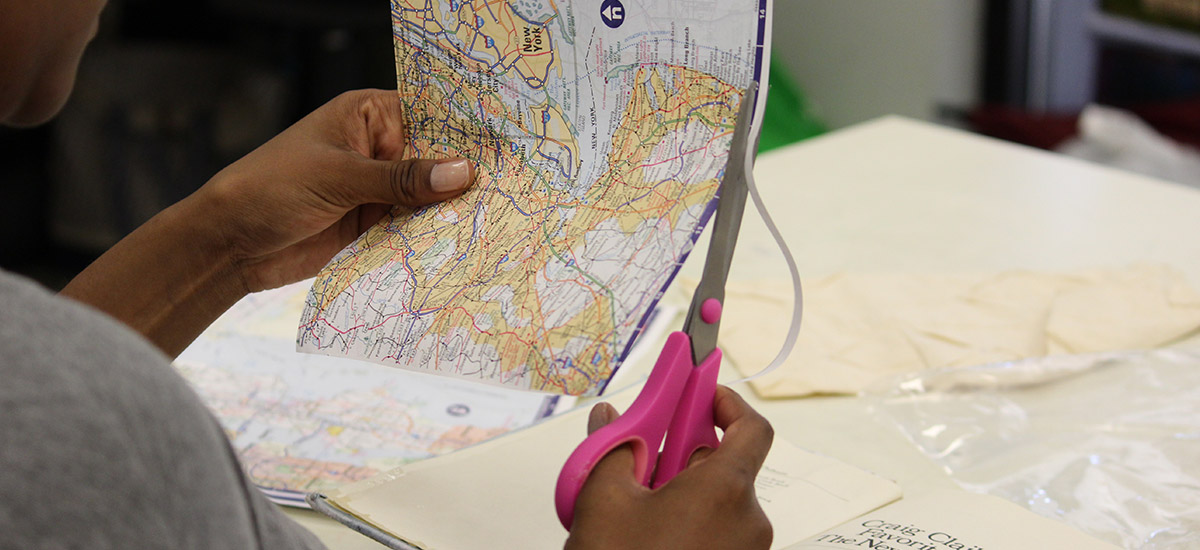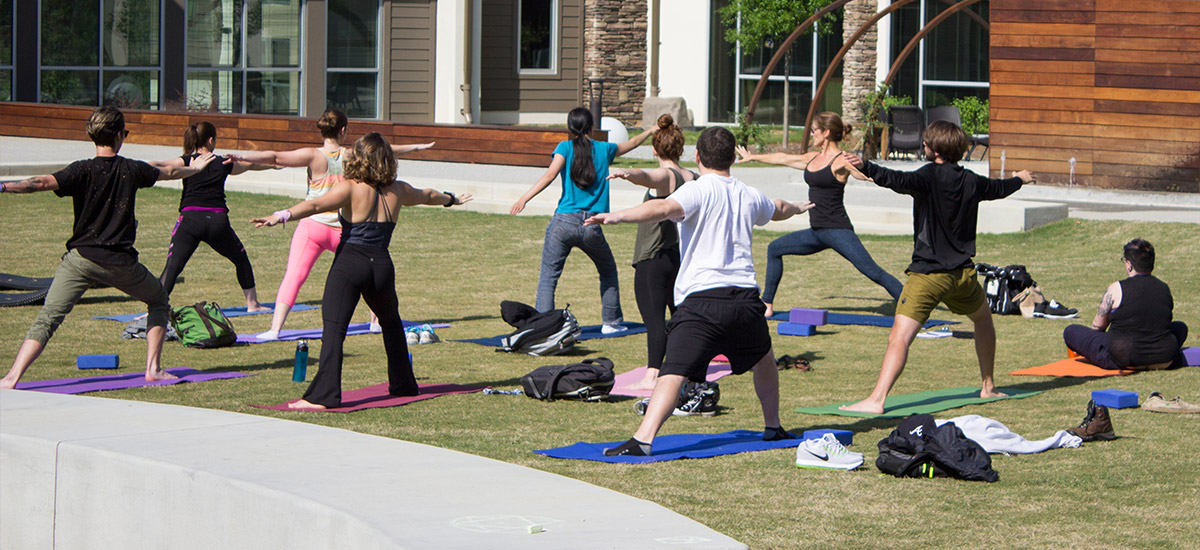A Holistic, Multidisciplinary Approach to Wellness
You are more than a diagnosis. You are not defined by your illness. Skyland Trail clients receive a powerful mix of therapies that help them make changes in all areas of their lives. This holistic approach to healing and wellness helps clients feel better mentally and physically. Mental health treatment is about more than medications and talk therapy. By engaging in groups or working individually with our multidisciplinary experts, our clients have the opportunity to:
- learn how to use art and music as tools for staying healthy
- discover how spending time in nature improves their mindfulness practice
- connect what they're learning in therapy to how they approach school or work
- incorporate spiritual reflection into treatment goals
- improve relationships with family or peers through family therapy
- practice self care strategies
- develop live-long healthy habits for eating and exercising
- address physical illnesses or other barriers to wellness
Vocational & Academic Services
Vocational services for adult clients provides support to return to school, prepare for a career, improve work-life balance, or adjust specific workplace challenges.
For our adolescent clients, academic education promotes intellectual development and helps teens maintain progress in school. Academic coordinators provide daily support throughout residential treatment and help adolescent clients develop future goals for continued success after treatment. Accredited online programs are available for clients who are not currently enrolled in a school.

Art, Music, and Horticultural Therapies
Led by caring professionals who are experts in their fields, adjunctive group sessions – horticultural, art, music, recreation, and social enrichment – help clients find new ways to express their thoughts and emotions, learn new skills, build confidence, and interact with their peers and the community.
Some clients may be not be ready, willing or even able to express their thoughts and feelings verbally. For these clients, adjunctive therapies, that encourage expression through movement, music or hands-on activities with clay, wood, plants or stones, can help open doors to the process of sharing and communication.
For all clients, adjunctive sessions provide a break from talk therapy and an opportunity to focus on something besides mental illness. In addition to hands-on activities on campus, many adjunctive sessions involve projects in the community, helping clients understand their ability to contribute to society in positive ways.
Clients in our residential and day treatment programs participate in group adjunctive therapy sessions as part of their weekly schedules of clinically structured activities.
Recreation, Leisure, and Social Enrichment Therapies
Our recreational therapists lead an array of fitness and leisure activities that contribute to self-esteem, social confidence and physical well-being. Group sessions include yoga, structured exercise and team sports like basketball and volleyball. Other activities take place in the community and introduce clients to healthy ways to spend their free time or connect with their communities.

Interfaith Spiritual Counseling
Our interfaith spiritual counselor helps adult clients find the spiritual practices that work best for them during their recovery.
Some clients may benefit from familiar religious approaches like prayer or studying written texts, while others may find healing in creative writing or meditative exercises. The following spiritual counseling services are available to our clients:
- Individual sessions with our spiritual counselor to assist clients with spiritual concerns related to their mental illness
- Group sessions exploring the role of spirituality in recovery from mental illness
- Meditative exercises drawing from a variety of faith traditions (Labyrinth exercises, meditation, mindfulness, and creation of meditative aids)
- Loss and grief groups focusing on the process of grief
Our spiritual counselor is an integrated member of our multidisciplinary treatment team of psychiatrists and therapists, with experience in spiritual care in medical and mental health settings.
